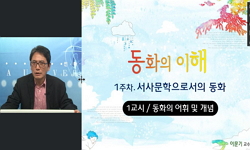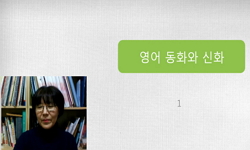이 글에서는 강점기 식민통치에 협력하기 위해 조직된 여러 연구 단체 중에서도 병합을 기념하여 만들어지고, 또한 일본의 ‘동화사업’을 위해 중요한 역할을 했다고 생각되는 조선연구회...
http://chineseinput.net/에서 pinyin(병음)방식으로 중국어를 변환할 수 있습니다.
변환된 중국어를 복사하여 사용하시면 됩니다.
- 中文 을 입력하시려면 zhongwen을 입력하시고 space를누르시면됩니다.
- 北京 을 입력하시려면 beijing을 입력하시고 space를 누르시면 됩니다.
일제강점기 조선연구회의 활동과 조선인식_프리프린트
한글로보기https://www.riss.kr/link?id=G3804962
- 저자
- 발행기관
-
발행연도
2005년
-
작성언어
Korean
- 주제어
-
자료형태
한국연구재단(NRF)
-
0
상세조회 -
0
다운로드
부가정보
국문 초록 (Abstract)
이 글에서는 강점기 식민통치에 협력하기 위해 조직된 여러 연구 단체 중에서도 병합을 기념하여 만들어지고, 또한 일본의 ‘동화사업’을 위해 중요한 역할을 했다고 생각되는 조선연구회를 중심으로 살펴보려고 한다. 이를 위해 먼저 한말 일제하의 조선연구 단체를 개괄적으로 검토한 다음에, 조선연구회의 성립경위와 구성원의 활동을 고찰한다. 그리고 조선연구회의 출판물을 검토하여 조선연구회가 당시 총독정치를 어떻게 평가하고 당면한 동화문제를 어떻게 인식하였는지를 분석한다. 이를 위해 조선연구회가 총독정치 3주년과 5주년을 기념하여 발간한 《朝鮮》(1913)과 《新朝鮮》(1916)에 수록된 글을 중심으로 살펴보고자 한다.
다국어 초록 (Multilingual Abstract)
The Communists, with helps from within, brought a complete overhaul to the Korean Democratic party. They changed everything, from the leading committee to the ordinary party members. In the meantime, Cho Man-Sik(曺晩植) and his fellow members, helped by the political factions in the Southern region of the Korean peninsula with which he had established relationships since right after the Liberation, launched a movement rejecting the trusteeship option. Cho Man-Sik also directly contacted the U.S. Army military Government in Korea, and coordinated efforts in tuning their final position dealing with the decision made at the Moscow Conference of Foreign Ministers.
After the Korean Democratic party was considerably overhauled, the Cho Man-Sik faction was completely excluded from the National Unified Front. The Communists newly recruited members from the Cheondo-gyo(天道敎) religious order and also some of the Christians, and they also organized several social organizations, to expand the range of the Unified Front. The Unified Front with Communists was finally established in July 22nd, 1946 when the North Korean Democratic National Unified Front was established. But the fact that the Nationalists were not included, and the fact that the very faction of Cho Man-Sik who was expelled from the party came to lead the Anti-Trusteeship/Anti-Communism movement, seriously hurt the cause of establishing such unified front.
Right after the Liberation, the faction that led the foundation of the Korean Democratic party(朝鮮民主黨) launched the National Unified Front movement. They were encouraged by the memories of the Shingan-hwae(新幹會) committee’s activities ...
Right after the Liberation, the faction that led the foundation of the Korean Democratic party(朝鮮民主黨) launched the National Unified Front movement. They were encouraged by the memories of the Shingan-hwae(新幹會) committee’s activities during the Japanese Occupation period, and after the liberation they also became aware of the necessity to devise Socialist policies in the Northern region of the Korean peninsula. The organization of the Korean Democratic party was a result of a mutual agreement between the Communists and the Nationalists. But their respective goals to be gained from the National Unified Front movement were different, so when they were informed of the results of the discussions that were exchanged at the Moscow Conference of Foreign Ministers regarding the foundation of a Korean nation, their cooperation ended and they started to attack each other.
The Communists, with helps from within, brought a complete overhaul to the Korean Democratic party. They changed everything, from the leading committee to the ordinary party members. In the meantime, Cho Man-Sik(曺晩植) and his fellow members, helped by the political factions in the Southern region of the Korean peninsula with which he had established relationships since right after the Liberation, launched a movement rejecting the trusteeship option. Cho Man-Sik also directly contacted the U.S. Army military Government in Korea, and coordinated efforts in tuning their final position dealing with the decision made at the Moscow Conference of Foreign Ministers.
After the Korean Democratic party was considerably overhauled, the Cho Man-Sik faction was completely excluded from the National Unified Front. The Communists newly recruited members from the Cheondo-gyo(天道敎) religious order and also some of the Christians, and they also organized several social organizations, to expand the range of the Unified Front. The Unified Front with Communists was finally established in July 22nd, 1946 when the North Korean Democratic National Unified Front was established. But the fact that the Nationalists were not included, and the fact that the very faction of Cho Man-Sik who was expelled from the party came to lead the Anti-Trusteeship/Anti-Communism movement, seriously hurt the cause of establishing such unified front.
국문 초록 (Abstract)
상위 학술논문정보원은 본 프리프린트에 대한 학술논문의 정보를 입력한 것입니다.
주초록은 본문의 일부분을 인용한 것입니다. 상위 학술논문정보원은 본 프리프린트에 대한 학술논문의 정보를 입력한 것입니다.
주초록은 본문의 일부분을 인용한 것입니다.
상위 학술논문정보원은 본 프리프린트에 대한 학술논문의 정보를 입력한 것입니다.
국문 초록 (Abstract)
Ⅰ. 한말 일제하 일본의 조선연구 단체
Ⅱ. 조선연구회의 성립과 활동
1. 조선연구회의 성립과 구성원
2. 조선연구회의 활동과 출판사업
3. 조선연구회 평의원의 조선인식
Ⅲ. 조선연구회의 조선인식
1. 총독정치에 대한 평가
2. 조선의 민족성과 동화론
3. 일선동조론
맺음말
머리말 Ⅰ. 한말 일제하 일본의 조선연구 단체 Ⅱ. 조선연구회의 성립과 활동 1. 조선연구회의 성립과 구성원 2. 조선연구회의 활동과 출판사업 3. 조선연구회 평의원의 조선인식 ...
머리말
Ⅰ. 한말 일제하 일본의 조선연구 단체
Ⅱ. 조선연구회의 성립과 활동
1. 조선연구회의 성립과 구성원
2. 조선연구회의 활동과 출판사업
3. 조선연구회 평의원의 조선인식
Ⅲ. 조선연구회의 조선인식
1. 총독정치에 대한 평가
2. 조선의 민족성과 동화론
3. 일선동조론
맺음말











